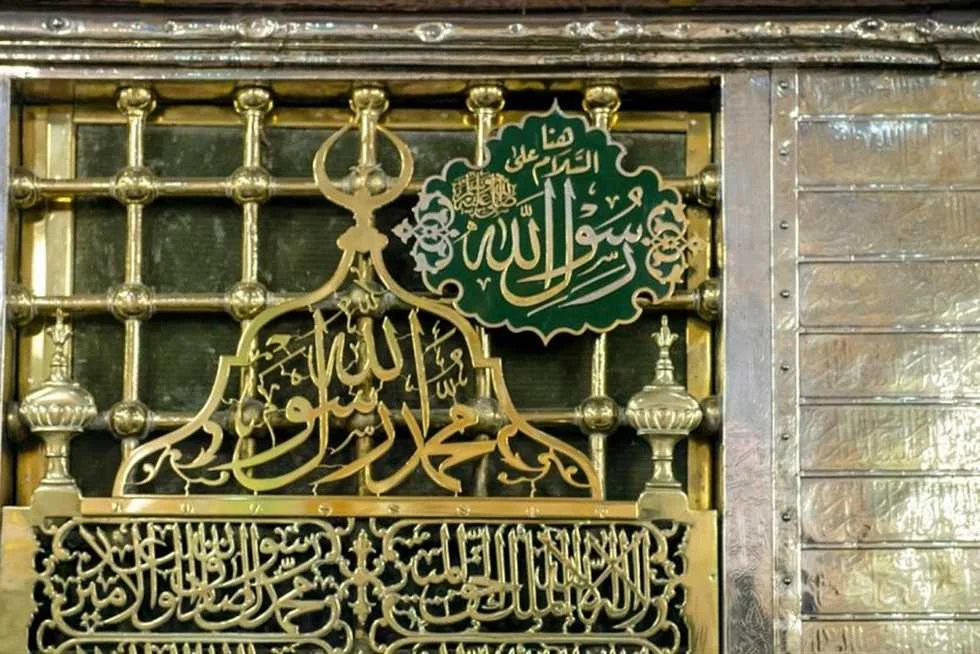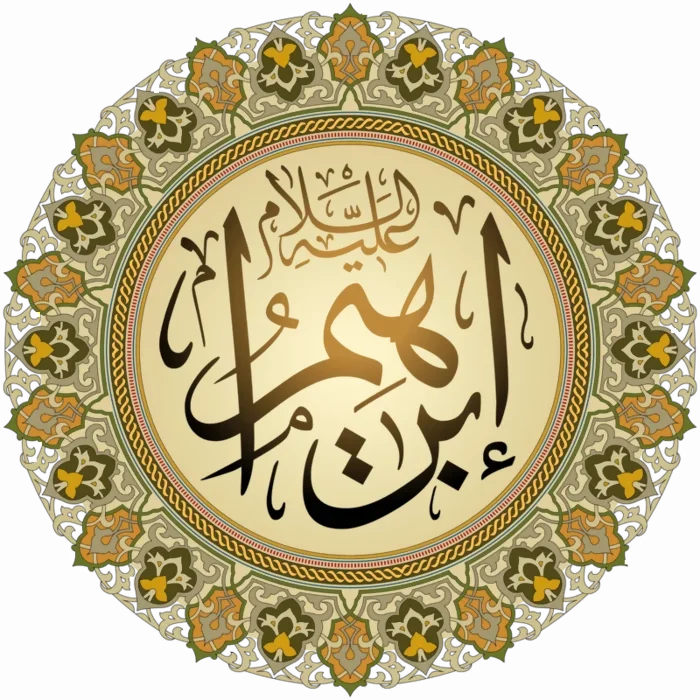The Prophecy Series: Prophet Muhammad (PBUH)

The values and traditions of Islamic society began with our honorable prophet Muhammad (Peace be upon him), and in his honorable biography, there are enough educational methods to produce an integrated generation. This article contains an interesting summary of the biography of prophet Muhammad (PBUH).
Who Was Prophet Muhammad?
Early Life
Prophet Muhammad (PBUH) was born in approximately 570 CE in Mecca, Saudi Arabia. He was the son of Abdullah ibn Abd al-Muttalib and Amina bint Wahb. His father, Abdullah, the son of Quraysh tribal leader Abd al-Muttalib ibn Hashim, died a few months before prophet Muhammad's birth. His mother Amina died when he was six, leaving prophet Muhammad (PBUH) an orphan. He was raised first by his grandfather and then by his uncle. He belonged to a poor but respectable family of the Quraysh tribe. The family was active in Meccan politics and trade.
Many of the tribes living in the Arabian Peninsula at the time were nomadic, trading goods as they crisscrossed the desert. Most tribes were polytheistic, worshiping their own set of gods. The town of Mecca was an important trading and religious center, home to many temples and worship sites where the devoted prayed to the idols of these gods. The most famous site was the Kaaba. That was built by Ibrahim and his son Ismail. Gradually the people of Mecca turned to polytheism and idolatry.
In his early teens, prophet Muhammad (PBUH) was a shepherd, following in the footsteps of many people his age, born of meager wealth. Working for his uncle, he gained experience in trade. In time, prophet Muhammad (PBUH) earned a reputation as honest and sincere, acquiring the nickname “Al-Amin” meaning faithful or trustworthy.
Marriage with Khadija
When he was 25 years old, a wealthy widow named Khadija, sent him with one of her trade caravans for business. She was so impressed by his honesty, that she sent him a marriage proposal, which he accepted. A woman who was 15 years older than him but whose support and companionship would help him in his mission; he would not take any other wife while he was married to her, although this was pretty common in Arabia back then. The Prophet had two sons and four daughters with Khadija. Both of his sons died in infancy. Later in his life, prophet Muhammad (PBUH) did marry other women and had another son, who also died in infancy.
Declaration of Prophecy
As he reached his late thirties, he began worshipping in a cave named “Hira”, in the mountain “Jabal al-Nour” (Mountain of Light), near Mecca. A light appeared before him, the angel Gabriel, who approached him with the first revelation from Allah. The angel Gabriel asked prophet Muhammad to “read,” but prophet Muhammad was illiterate and told Gabriel that he could not read, but Gabriel pressed on with the second line, commanding him to “read” again. Prophet Muhammad refused and couldn't read once again, Gabriel recited five ayat from surah "Al-Alaq": "(1) Recite in the name of your Lord who created – (2) Created man from a clinging substance. (3) Recite, and your Lord is the most Generous - (4) Who taught by the pen – (5) Taught man that which he knew not." After prophet Muhammad (PBUH) received this revelation, he raced home to his wife Khadija and told her what had happened. She believed his story and suggested he speak to her cousin, Waraqa, who was a Christian. When Waraqa heard the story, he told prophet Muhammad (PBUH) that there had been other revelations in the past, and it sounded like God wanted him to be a prophet to the Arab people.
Friction with Mecca's People
Muhammad began preaching the oneness of God to his family and close friends; the first convert was his wife Khadija and the first male convert was his close friend Abu Bakr. It was after some time (in 613 CE) that he began preaching openly, and he met resistance from the Meccans. Mecca hosted many idols at the Kaaba and their economy was mostly based on pilgrims pouring in from all corners of the Arabian Peninsula to worship these idols, whom prophet Muhammad (PBUH) considered false gods. The Meccans went to all lengths, from bribery to physical torture, to stop him, but he would not give in.
Notwithstanding with prophet Muhammad's growing influence, rival Qurayshite clans boycotted the Hashim clan to force them into withdrawing their support for prophet Muhammad (PBUH), which made conditions for prophet Muhammad and his followers (who are referred to as the “Sahaba”) quite difficult but, in the end, the boycott was lifted. Prophet Muhammad (PBUH) faced continual rejection in Mecca and so turned his attention toward Taif in 619 CE. He was initially welcomed there but the people rejected his message. His optimism was broken by the death of his uncle Abu Talib and his wife Khadija, in 619 CE (a year remembered as the “Year of Sorrow”). Abu Talib's position was taken by another of prophet Muhammad's uncles – Abu Lahab – who hated him, and lacking any support from his clan, prophet Muhammad was completely vulnerable.
Migration to Medina
Tired of Meccan persecution, some Muslims had already migrated to Abyssinia (Ethiopia) in 615 CE. But for the Prophet and the bulk of his followers, a real opportunity for escaping Meccan oppression came in 621 CE, when some citizens of Yathrib (modern-day Medina) invited the Prophet to their city. Impressed by his message, they wanted the Prophet to act as their ruler. Prophet Muhammad and his companions complied and migrated in batches to the city.
Narrowly escaping an attempt on his life, prophet Muhammad left Mecca with his close friend Abu Bakr and, after a perilous journey with the Meccans chasing them, they entered Medina in 622 CE. This migration (hegira) is so important in Islamic history that the Islamic Lunar Calendar considers this as year 0 AH (After Hegira). With his newly assumed role as the leader of Medina, prophet Muhammad became more than just a prophet; he became a king. Medina would soon be turned into a strong kingdom with standards of justice and unity never before seen in Arabia. Prophet Muhammad revised the law code and unified the city, using a mixture of persuasion and force of arms (since betrayal was never forgiven by Arabs who lived by the code of retribution).
Prophet Muhammad’s Battles
- Badr
- Uhud
- Al-Khandaq
- Quraydhah
- Al-Mustaliqh
- Khaybar
- Al-Fath (the conquering of Makkah)
- Hunayn
- Ta'if
Another victory happened at the battle of Hunayn (630 CE), and prophet Muhammad had also sent armies to conquer other important regions of Arabia. The city of Taif, from whence he had been forced to flee, submitted to his rule in 631 CE. An attempt to consolidate power over Arab tribes living under Byzantine rule failed with the Muslim defeat at the battle of Mu'tah (629 CE) but it gave prophet Muhammad's successors an idea for their future (successful) endeavors against the Byzantines.
Death of the Prophet Muhammad
By the time of his death in 632 CE, prophet Muhammad (PBUH) was the most powerful political leader in the whole of Arabia. Most of the tribes had converted to Islam. prophet Muhammad was a man of exceptional vision and administrative talent who also commanded armies in battle with incredible skill and charisma without any prior experience. He endured a great deal of hardship to spread his message. After a brief illness, prophet Muhammad died peacefully in his own house with his youngest wife, Aisha (Abu Bakr's daughter), by his side.

